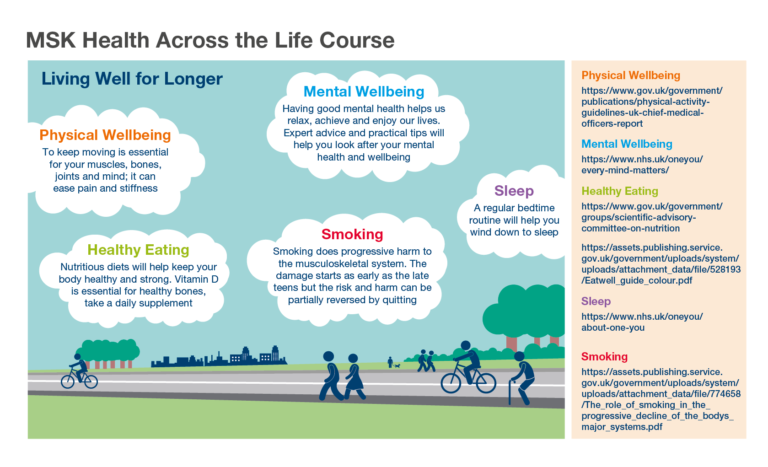Home / Healthcare & Medicine / Public Health / Musculoskeletal Health: A Public Health Approach / How to support smokers to quit
This article is from the free online
Musculoskeletal Health: A Public Health Approach


Reach your personal and professional goals
Unlock access to hundreds of expert online courses and degrees from top universities and educators to gain accredited qualifications and professional CV-building certificates.
Join over 18 million learners to launch, switch or build upon your career, all at your own pace, across a wide range of topic areas.

 MSK Health Across the Life Course. This looks at Physical Wellbeing, Mental Wellbeing, Healthy Eating, Smoking and Sleep.
MSK Health Across the Life Course. This looks at Physical Wellbeing, Mental Wellbeing, Healthy Eating, Smoking and Sleep.





